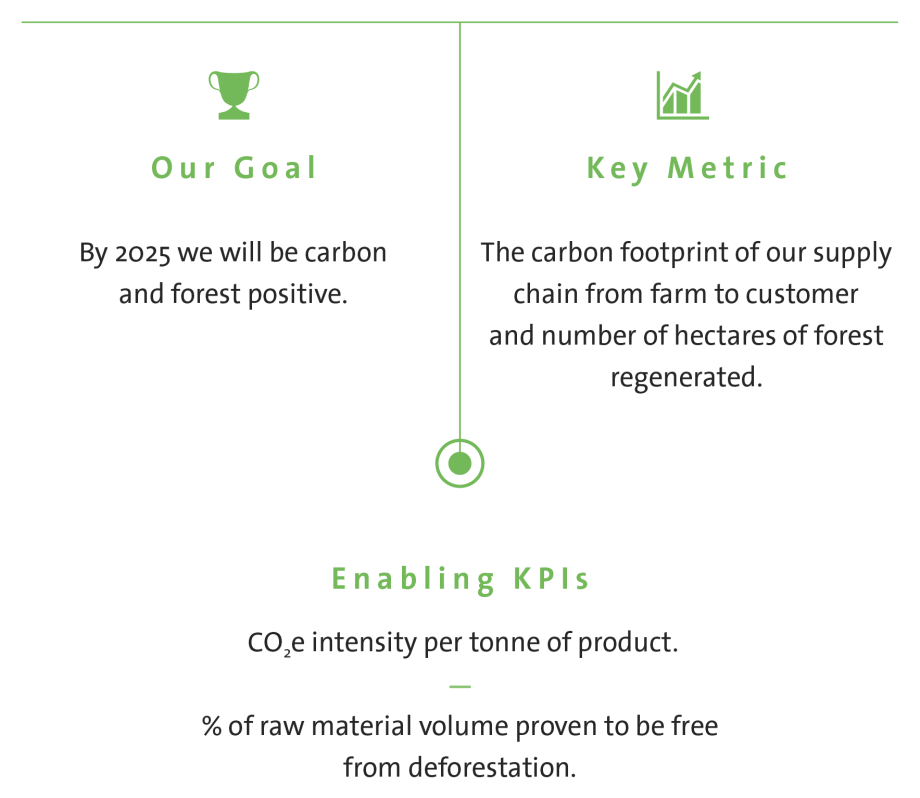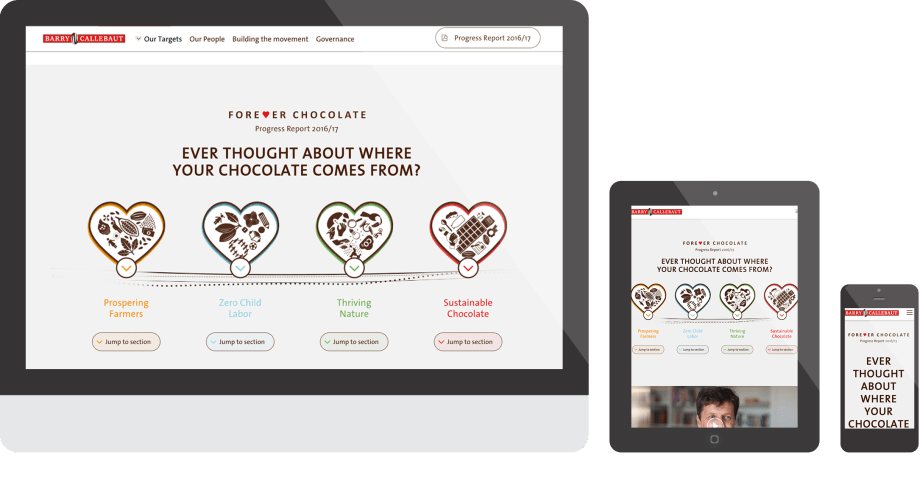Barry Callebaut leading among peers in reducing carbon footprint

Barry Callebaut leading among peers in reducing carbon footprint

Barry Callebaut targets to be carbon positive by 2025, meaning that we will store more carbon in our supply chain than we emit. In order to track how we are progressing against this target, we submit each year our plans and activities to reduce our carbon footprint to the CDP. CDP is an independent organization which receives and assesses the carbon reduction plans of over 7,000 companies every year, scoring them on a scale of A, the pioneers, to F.
On track reducing our carbon footprint - and the leader among our peers
We are very proud to have been awarded an A- on our activities to reduce our carbon footprint in 2018 in the CDP 2018 assessment. This puts us in the top 6% of the close to 7,000 disclosing companies and makes us a leader among our peers.
This is a tremendous appreciation for our efforts to become carbon positive. In order to achieve this target, we are not just looking at the carbon footprint created by our own operations (scope 1) and generated by the energy we use (scope 2). We also take into account the carbon footprint of our entire chocolate supply chain (scope 3), including the production and processing of all raw materials we source, and related land use changes. This is an enormous challenge, but the CDP recognition shows we are on track and leading among our peers.
How are we becoming carbon positive?
One way of tackling our carbon footprint is by looking into enhancing carbon storage on agricultural land, by
- fostering the use of low carbon technology in our own operations,
- implementing good agricultural practices (GAP) and
- by making the planting of shade trees an integral part of the farm packages we provide to cocoa farmers.
We have also teamed up with a renowned research consultancy, Quantis, to undertake analytical work required to more accurately understand carbon in our cocoa supply chain.
Another important challenge is carbon emissions generated by the production of dairy. Here, we are working with our suppliers and nutrition companies to create a more sustainable dairy production, including lower carbon emissions, through the Vision Dairy program. We have also joined the Cool Farm Alliance in September 2018 and work with industry partners to drive convergence and adoption of carbon measurement tools. Optimizing our carbon footprint constitutes a mix of minimizing the carbon footprint of our factories by increasing energy efficiency, as well as the carbon footprint of our transport activities and our ingredients. To date, 14 out of our 59 factories (24%) are powered by 100% renewable electricity and assessments for on-site generation of renewable energy are being conducted at several other sites.
We also aim to become forest positive, meaning that our supply chain adds more trees than it causes to be uprooted. To get there, we first of all need to become deforestation-free. This will require us to work with sustainability certifications and standards – including our own sustainability program Cocoa Horizons – and to develop our own systems that allow for credible proof of the deforestation-free claim.
As part of these systems, remote sensing is playing a key role. We teamed up with the Swiss Federal Institute of Technology (ETH) in Zurich to jointly develop a satellite-based system that can monitor land use change and deforestation. Once finalized, we will make it publicly available. Most importantly, it will allow us to hold our suppliers accountable at a different level. Furthermore, we are engaging in different multi-stakeholder initiatives such as the Palm Oil Innovation Group or the Cerrado Manifesto to drive sustainable practices in forest-risk areas. Our efforts were awarded a “B” for both palm and soy in the CDP forest report, which we consider a great encouragement to continue on our chartered course.

More background on how we are becoming carbon & forest positive